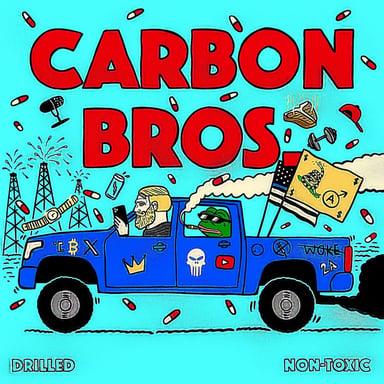About
Reporting on climate disinformation has increased exponentially over the past decade. In 2015, reporters at Inside Climate News, The Los Angeles Times, and Columbia Journalism School published the stories collectively referred to as “Exxon Knew,” on the research and warnings about climate change that Exxon scientists shared with the company’s management beginning in the 1970s. Since then, reporters at various outlets and researchers at NGOs have written about similar disinformation campaigns at Shell, Eni, Total, and GM. Others have reported on the role the PR and advertising industries played in crafting the messaging that first obstructed and then delayed climate action. Still others have dug into how the Koch brothers and right-wing activists like Leonard Leo shaped policy and laws that made it harder for the U.S. to regulate greenhouse gas emissions.
This work has gone a long way towards building an understanding of how the world’s most powerful governments have failed to act to avoid a crisis scientists have been warning about for more than 50 years. But it’s important to keep in mind that the behaviors and strategies that obstructed climate action for decades weren’t just retired in the 2010s, when the oil companies decided it was no longer beneficial to pretend climate change wasn’t real. Nor are they limited solely to shaping how we understand the problem of climate change. These strategies have also been used to narrow how the public and political leaders think about solutions to the problem, and to drive funding and attention toward solutions that continue to benefit the fossil fuel industry.
The same tactics fossil fuel companies used to cast doubt on or obscure climate science and to downplay the problem have, in recent years, been increasingly used to push false solutions to the climate crisis. The industry knows that “solutions” like carbon capture, liquefied natural gas, hydrogen, and renewable natural gas will work only to protect its profits, not to curb greenhouse gas emissions. The tactics they use include funding university research that skews public discourse and policymaking in the direction of their preferred solutions; creating coalitions to push those solutions via lobbying and PR; hiring management consultancies to conduct skewed analysis supporting those solutions; and amplifying disinformation via PR and advertising campaigns.
Over the past several months, Drilled has been digging into what the industry says privately about its preferred climate solutions compared to what it says publicly about them. We’ve talked to current and former staff at oil companies as well as expert scientists, dug up primary documents, and watched countless hours of promotional videos.
Tackling information pollution and cleaning up our information ecosystem is a key first step toward acting on climate. In a recent interview with Drilled, Rutgers media studies professor Melissa Aronczyk explained why.
“The stuff we see as disinformation—the misleading ad campaigns, or the executives saying very misleading things on cable news—it’s just the tip of the iceberg,” she said. “To really understand and address climate disinformation, you have to see the whole picture, see how they shape all of these different types of information and data that become the building blocks of policy. You have to see what university research they’re funding, what parameters they’re putting on economic models, how they’re interacting with management consultants, what trade groups they’re participating in, what research and lobbying coalitions they’re part of, how they’re approaching thought leadership and influencers, how they’re shaping cultural norms, and how all of that is being done in service of pushing particular policies or keeping regulation at bay.”
In a series that will run throughout the summer, both here on our website and in the Drilled podcast, we’ll dig into key examples of this around the world. We’ll show you how fossil fuel companies have used the same tactics they used to suppress and spin climate science to block the energy transition, warp international climate negotiations, blur the language around government climate commitments, and get governments all over the world to commit billions of dollars toward “climate solutions” that will extend the life of fossil fuels for decades to come and continue to obstruct and delay real solutions.
This series is supported in part by the Pulitzer Center, with several pieces co-published with media partners.


Genevieve Guenther on the Language of Climate Politics
A deep dive on the rhetoric of climate delay.
A deep dive on the rhetoric of climate delay.


The Great Greening of LNG
How did a fossil fuel become a climate solution?
How did a fossil fuel become a climate solution?


How Management Consultancies “Data Wash” for the Fossil Fuel Industry
Management consultancies play a unique role in climate disinformation, often working for both government regulators and the industries they regulate at the same time.
Management consultancies play a unique role in climate disinformation, often working for both government regulators and the industries they regulate at the same time.








